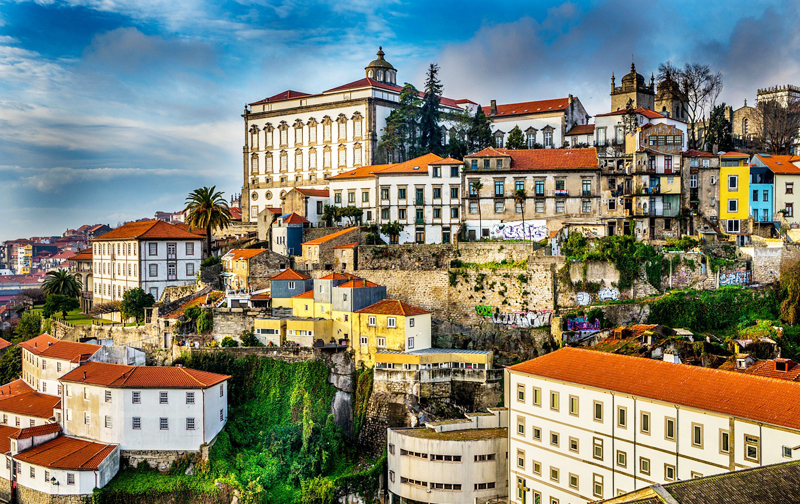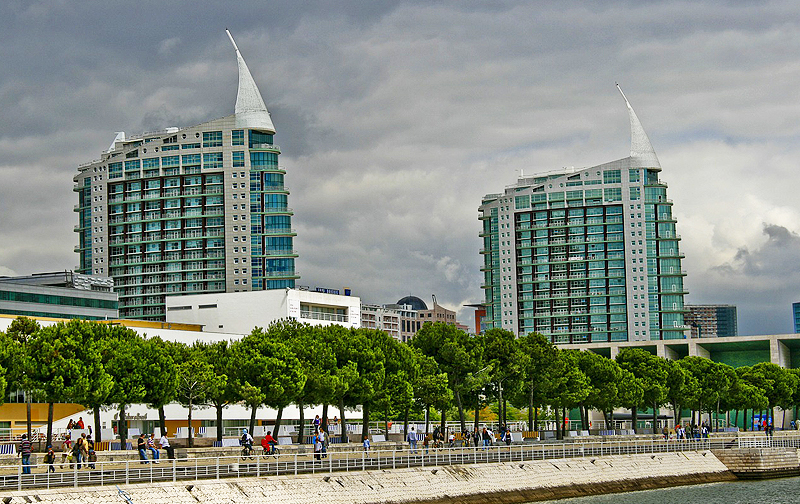
Setting Up An Expat Bank Account In Portugal
Tiffany JansenPosted: November 1st, 2013
 Porto Portugal
Porto PortugalAre you an expat looking to migrate?
Check out these visa residency and second passport options.
▸ The 5 Best Second Passport Islands In The Caribbean
▸ How To Get Panama Residency And Other Visas
▸ Important Facts And Benefits Of A Vanuatu Second Passport
▸ Grenada Citizenship By Investment Program
▸ St Kitts And Nevis Citizenship By Investment Program
▸ Why Panamanian Residency Is Easier Than Most Others
▸ 6 Reasons Panama Is One Of The Best Places To Move To
Expat Banking In Portugal
Before you settle in and start enjoying your new life in Portugal, there are a number of logistical things you need to take care of. The most important of these is setting up a Portuguese bank account.
Getting a bank account up and running in a new country can be a confusing challenge for many expats. To make the process as easy as possible, we created the following guide to setting up a bank account in Portugal.
Money Matters
As one of the founding countries of the Eurozone, Portugal’s currency is none other than the euro (EUR).
Denominations are as follows:
Notes – 5, 10, 20, 50, 100, 200, and 500
Coins – 1 and 2 euro coins; 1, 2, 5, 10, 20, and 50 cent coins
ATMs are a common commodity in Portugal. Called Multibancos, they allow customers to accomplish a number of tasks in addition to withdrawing cash, including paying bills, making purchases, and making income and added value tax payments. Portugal’s Multibanco system is touted to be one of the best in the world.
You can use your Multibanco card as both a debit and credit card. Many establishments accept Traveler’s Checks and all major credit cards are widely accepted. It is advised that you do carry some cash with you as there are establishments in the country that do not accept credit or debit cards. The majority of Portuguese banks also offer currency exchange services.
Banks in Portugal
Portugal is host to a plethora of local and foreign banks. The big three are Millennium BCP, Banco Espirito Santo, and BBVA. The list of foreign banks includes Barclays, Fortis, Citibank, and the Deutsch Bank.
Banks in Portugal offer a wide array of services, such as current and deposit accounts, pension schemes, savings accounts (including those for children), joint accounts, student accounts, business accounts, and internet banking.
With the exception of weekends and public holidays, banks are typically open from 8:30 to 3.
What You'll Need
You can set up an account prior to your arrival in Portugal, but it's best if you can open your account in person. No matter where you open your account, you will be required to fill out an application form, which can be obtained either from the bank itself or from one of their foreign offices.
You will also need to sign the bank’s terms and conditions agreement and fill out a personal information form.
To seal the deal, you’ll need to bring along:
- a passport or some other form of identification,
- your fiscal number (grab this at the local finance office),
- proof of residence (usually in the form of a utility bill or lease agreement),
- proof of employment (e.g. a contract, payment slip, or note from employer),
- a letter of reference from your current bank,
- a minimum deposit somewhere in the neighborhood of €250 (check with the bank for exact totals).
Bouncing cheques is a criminal offense in Portugal. Should you have a cheque that bounces, you will be charged with fraud and will be required to pay 20% of the total amount of that cheque in interest and fees.
It is possible that you will be blacklisted by the Banco de Portugal and that any future requests made by you to open a new cheque account may be refused.
Before opening a bank account in any country, be sure to conduct your own research and shop around until you find a bank that's right for you.

